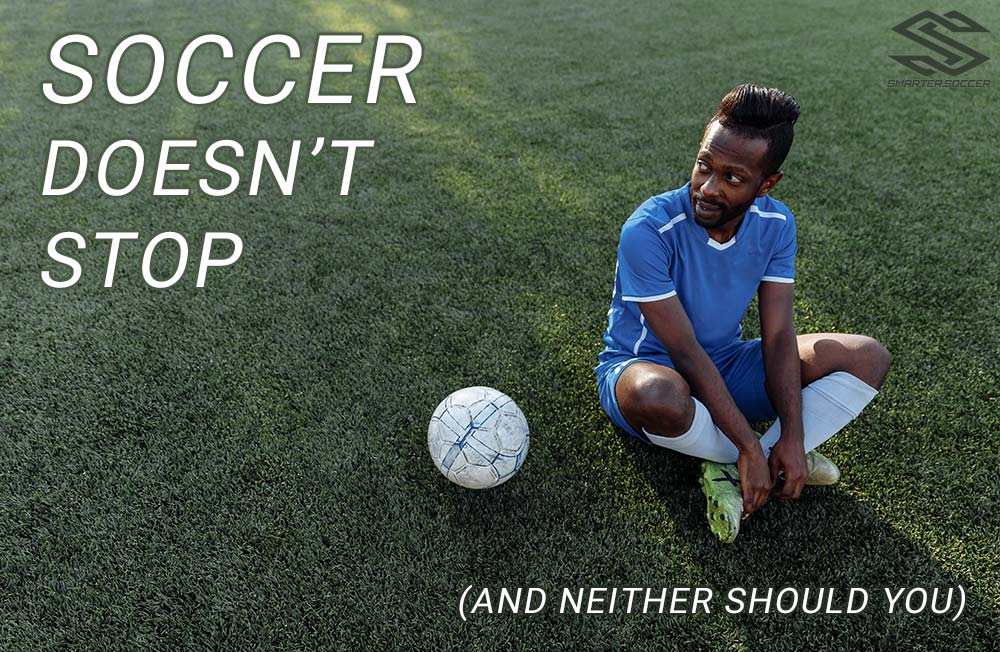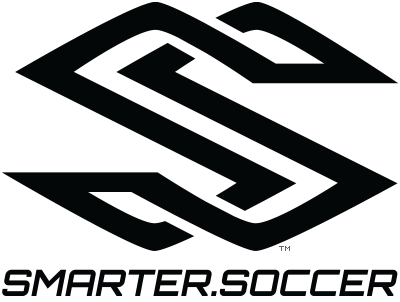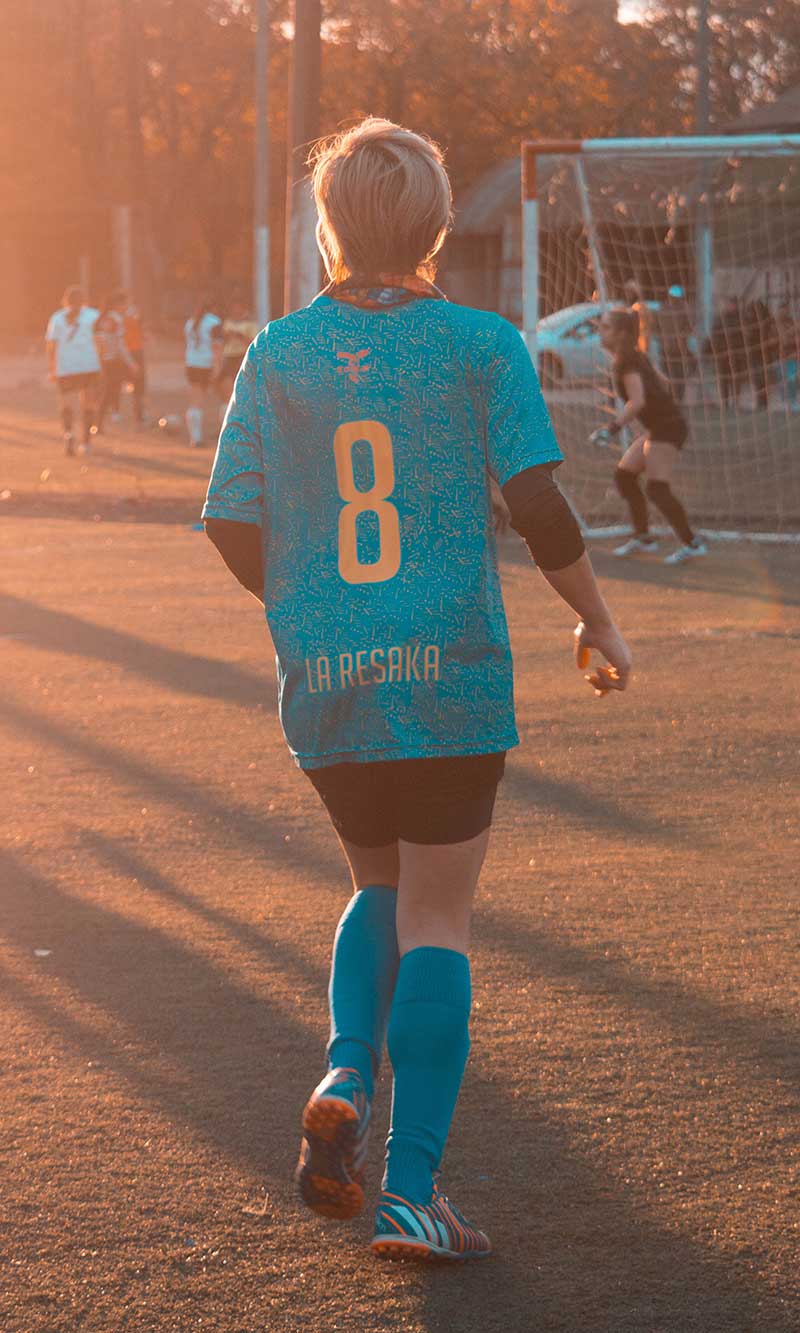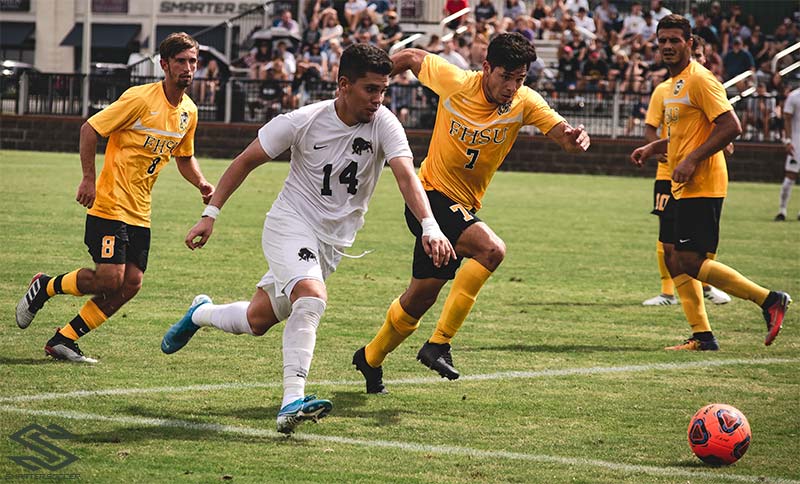SOCCER DOESN’T STOP
In this Soccer Hacks post, we’re going to discuss a fundamental aspect of soccer that many players, no matter how long they’ve been playing, still can’t grasp: Soccer NEVER stops.

Let’s be very clear:
- ➤ When there is a throw-in, soccer doesn’t stop.
- ➤ When there is a substitute, soccer doesn’t stop.
- ➤ When there is a goal kick, soccer doesn’t stop.
- ➤ When there is a direct or indirect kick, soccer doesn’t stop.
- ➤ When there is a corner kick, soccer doesn’t stop.
- ➤ When the referee issues a yellow/red card, soccer doesn’t stop.
- ➤ When the referee has a discussion with a player, soccer doesn’t stop.
- ➤ When the referee pauses play for a drop ball, soccer doesn’t stop.
- ➤ When there is a penalty kick, soccer doesn’t stop.
- ➤ When you’re sitting on the bench, soccer doesn’t stop.
- ➤ And finally, at halftime, soccer doesn’t stop.
Soccer never stops and neither should you. This is a crucial ingredient in becoming a smarter soccer player and the earlier you adopt this concept the better off you’ll be as you get older. For younger players, simply grasping that soccer doesn’t stop will help them immensely.
For older players, adding the ability to continually concentrate on the game provides a significant mental edge to a player’s performance. By always being focused, and continuously examining what’s happening on the field, you will be able to make keen observations, detect the opponent’s weaknesses and uncover the other team’s patterns of play.
➔ Listen To The “Soccer Never Stops (And Neither Should You)” podcast!
Here’s an example, you’re sitting on the bench as a substitute. You normally play left outside back on defense. Should you be discussing your last video game win with the sub next to you? Or should you be dissecting the player on the opposing team playing right forward? What 1v1 move is he using against your defenders? What foot does he favor when shooting? Does he make a burst to the end line and cross it in? Or is he looking to use his speed on a breakaway to goal? How is he getting serviced by his teammates? Are they chipping over the top, sending through balls or something else? As a substitute, if you don’t stop playing, even on the bench, you can answer many of these questions that I just asked. Thus, when it’s your turn to go into the game, you can impress your coach by shutting that right forward down.
Want to send your coach to an early grave?
Here’s another example that causes coaches to lose sleep at night. The referee awards the other team a direct kick about 24 yards out from goal. Instead of running backwards to get into the wall the goalie is screaming to setup, or man-marking their attackers, many players walk away with their back to the ball, as if they have all the time in the world. They think the game has stopped. Does soccer every stop? No! So instead of walking away with your back to the ball, now is your chance to spring into action and make sure your team is in the best position to defend.
Do you want to come out of the game and sit on the bench? Try walking back to your position with your back to the ball during a throw-in. That’ll give you a nice extended rest.
Many players believe that halftime is a period where they stop playing. False. Your body may be resting while you hydrate, but your mind shouldn’t stop. Before your coach even gets out his clipboard, you should be self-coaching. What did the team do well and/or poorly during the first half? What did I do well and/or poorly? What corrections should I make?
Now when your coach is ready to give you his/her take on the game and what adjustments are to be made, you should be focused and ready to absorb this important data. This is the only time the team can all get together during the game and develop a plan. Now is not the time to tune out and think about lunch, or go back to that video game debate. Now is the time to combine your observations on the first half and your coach’s adjustments and decide how your play can improve in the second half.
Think of it like this: ever notice when you’re reading a book and your mind drifts off thinking about something else? What happens? You realize you have no idea what you just read and you have to go back and re-read the paragraph or page again. Same thing happens when you play soccer. If you’re not focused on the game, and you let your mind drift off, you’re not ready to make a play. Suddenly, you have to “reread” the game, figure out what’s going on and then adjust. This means you have to use a ton of mental energy to try and catchup to the game, instead of using that time and effort to make a play.
Or lets use another analogy with even direr consequences. If you’re driving a car, do you let go of the wheel to turn around and search for that half-eaten donut that your sister left on the back seat? No! You’ll crash.
So is it important to have a chat with your teammate about Math homework during the game? Or ask the opponent what school he goes to? Or focus on a tuft of grass that looks like Donald Trump’s hair? No! Don’t stop playing and keep your focus.
How can I practice this?
Realize, this is something you’re going to have to practice. Just because you now understand the importance of keeping your focus and never stop playing doesn’t mean you’re instantly going to change how you play. So, if you’ve been following along, you’re going to ask yourself, how can I practice this?
When you’re training! If you practice never stop playing and keeping your focus at team training, not only is it going to help you in games, but guess what? It helps you get more out of your training sessions and even better, makes a great impression on your coach!
Think about it! What’s going to impress your coach? You having a water bottle fight during a break? Or you maintaining your connection to the practice by thinking about how you can improve and listening intently when instructions are delivered about how to execute the next drill?
To summarize: During a game, never stop playing from the moment you get to the field until the final whistle. Keep your focus by not switching off, even for a moment. If you feel like you’re taking your hands off the wheel, tell yourself to “refocus” and reconnect to the game. Practice never stop playing and keeping your focus at your training sessions.


Are you watching the game?
Or playing the game?
Soccer never stops and neither should you. This is a crucial ingredient in becoming a smarter soccer player and the earlier you adopt this concept the better off you’ll be…
S.01
Soccer Never Stops
Summary
Soccer never stops is an aspect of the sport that seems painfully obvious, but many quality players still find themselves switching off and becoming disconnected at some point during a game. Maintaining continual focus is not easy, and thus it must be practiced at every one of your training sessions.
In order to train yourself, you’re going to have to redirect your mind whenever it starts drifting off. Using a keyword like “keep playing” or “Don’t Stop!” can help — just as long it as you keep it consistent.
★ Smarter.Soccer Insight: The ability to “Keep Playing” will also have a big impact on your coach. Coaches love relentless players. Now it’s important not to confuse being relentless with being aggressive. Being relentless means you never stop playing. Being aggressive means you physically (and sometimes mentally) assert yourself on the field. While some coaches may favor aggressive players (because being aggressive can’t necessarily be successfully “coached” ), smart coaches rather have relentless players. Why? Aggressive players, often lack emotional intelligence, which means they 1) get into altercations, resulting in yellow or red cards, 2) make dumb fouls, giving the opponent direct kicks or penalties, 3) injure themselves or others, and 4) make tactical choices based on anger, which are usually not smart.

Trackbacks/Pingbacks